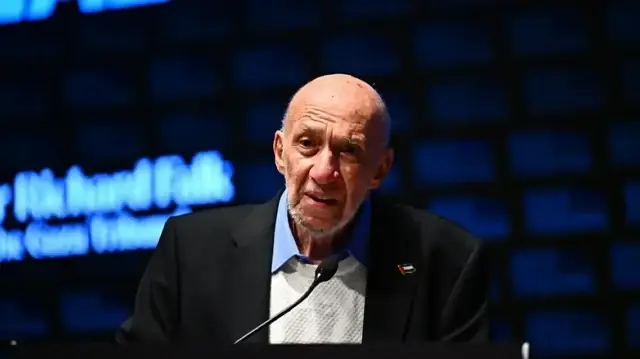Gaza Tribunal in Istanbul concludes, issues genocide findings

The Gaza People's Tribunal concluded its final session in Istanbul with a declaration that Israel is committing an ongoing genocide against Palestinians. Former UN official Richard Falk described the tribunal's work as "a glimmer of light" during a dark historical period.
The Gaza People's Tribunal concluded its four-day final session in Istanbul on Sunday with a comprehensive declaration describing Israel's actions in Gaza as an ongoing genocide. The tribunal, presided over by former UN special rapporteur Richard Falk, brought together international jurists and scholars to document crimes against Palestinians.
Tribunal's Final Declaration
In what organizers termed the "Istanbul Statement," the tribunal characterized the current situation as "a watershed moment in the history of our world." The document warned that failing to hold Israel and its Western supporters accountable would amount to ratifying "one of the worst atrocities in history." The statement rejected recent peace proposals by US and French leaders, arguing they would impose "proxy occupation and colonial control over the victims of genocide."
Historical Context and Significance
Richard Falk, closing the proceedings, dedicated the tribunal's work to Palestinians "everywhere in the world" who have endured decades of displacement and occupation. He emphasized that the Palestinian tragedy "began not on Oct. 7th but a century and more earlier." Falk praised the international Jury of Conscience for producing what he called a comprehensive and clear documentation of the situation, describing the tribunal's work as "a glimmer of light in what has been a dark period in human history."
Four Days of Testimony and Analysis
The Istanbul sessions, held at Istanbul University from Thursday through Sunday, represented the culmination of a year-long process that included earlier hearings in Sarajevo. Proceedings were organized across three thematic chambers examining international law, world order, and historical-ethical dimensions. Testimonies covered starvation tactics, environmental destruction, targeting of civilian infrastructure, and systematic attacks on healthcare and education systems.
The tribunal called for intensified civil society action including boycotts, divestment campaigns, and public protests to demand accountability for perpetrators and "freedom for Palestine." The people's tribunal, modeled on the historic Russell Tribunal, aimed to create a comprehensive "people's record" of what participants assert amounts to genocide and systematic violations of international law.
Reklam yükleniyor...
Reklam yükleniyor...







Comments you share on our site are a valuable resource for other users. Please be respectful of different opinions and other users. Avoid using rude, aggressive, derogatory, or discriminatory language.